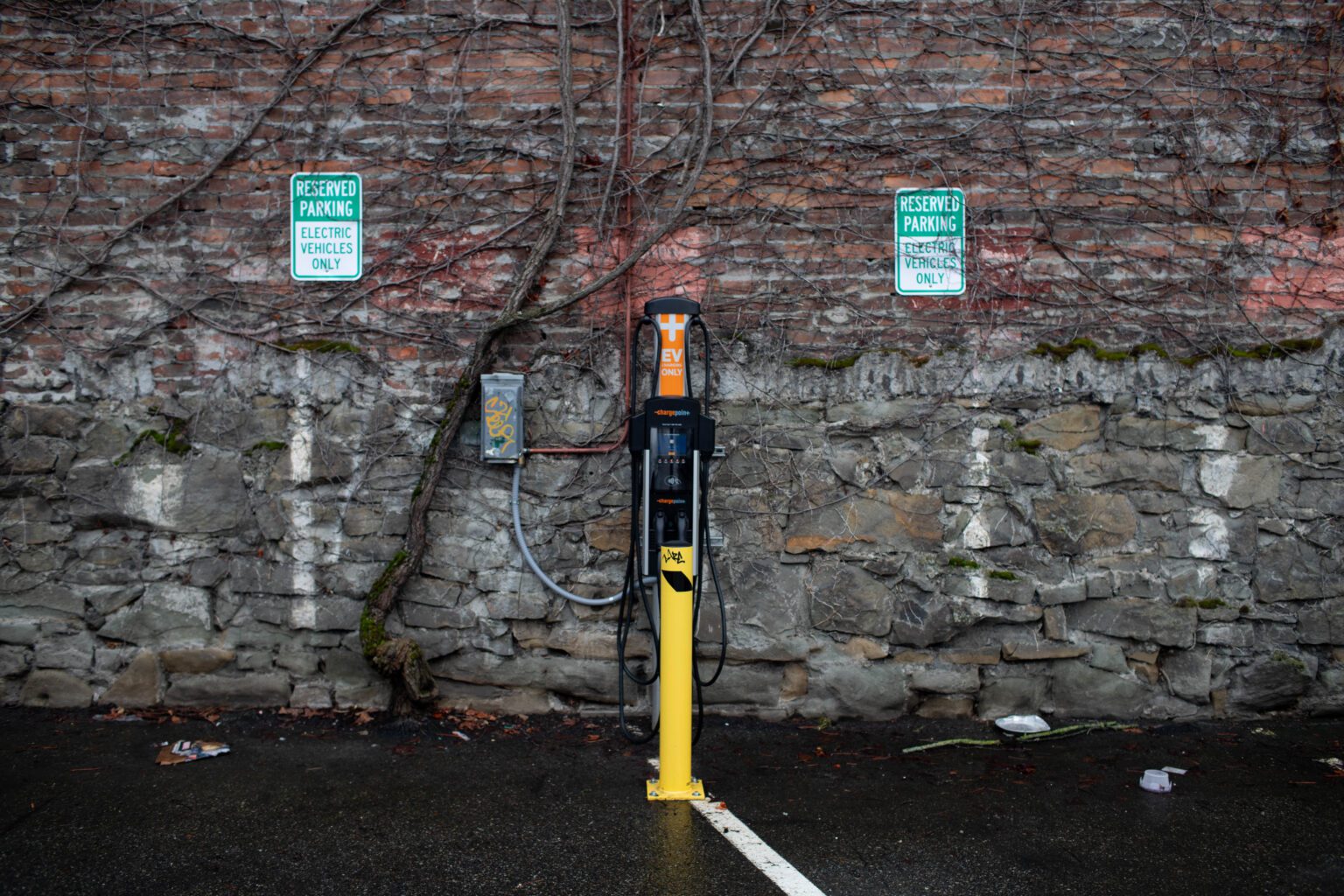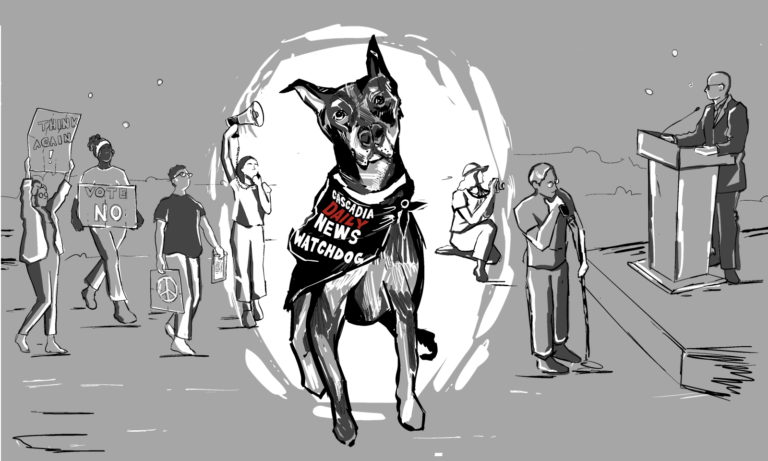Bellingham City Council considered two resolutions establishing fees and regulations for use of city-owned electric vehicle charging stations during the Public Works and Natural Resources Committee meeting Monday.
The city, which currently owns just three charging stations, plans to install another 45 brand-new charging stations at 26 city-owned sites across Bellingham, with installation slated to begin mid-November.
“This constitutes a really large expansion of the city’s current three city-owned chargers,” Seth Vidaña, the city’s climate and energy manager, told council members Monday.
Each station typically has about two plugs on it, meaning the 45 stations will create charging opportunities for 90 additional EVs, Vidaña said.
“The city’s efforts on providing electric vehicle charging flow from, as usual, our climate action plan, which identifies vehicle emissions as a source of nearly one-third of our total community carbon pollution,” Vidaña told council members during a presentation. “EVs are still a very small percentage of the total vehicles that are out on the road, growing by leaps and bounds, but not everyone is familiar with the technology.”
The resolutions heard Monday will allow the city to charge a new rate at city-owned stations. Currently, base rates for EV charging at the city’s three stations is 75 cents per hour — the same as the parking rate for non-EVs at the time the chargers were installed.
Instead of billing users by time, according to the resolution, the city intends to bill users by kilowatt-hour (kWh) usage, charging base rates at 25 cents per kWh, with additional fees for fast charging, at metered parking spots and for occupying a charging space after the EV finishes charging.
Vidaña provided sample bills for several hypothetical EV drivers, including a driver parked at the Juliana Park charging station. The driver spent 120 minutes charging and paid $3.60. The equivalent cost in gas (at $5.39/gallon), according to the sample bill, was more than double, at approximately $8.74.
During the meeting Monday, council members questioned the rate schedule, as well as future EV charging station expansion.
“This is a great start, to get the 45 new stations in,” council member Lisa Anderson said. “I’m wondering, has there been an analysis of, basically, how many [chargers] we need to disperse around the city in order to … be able to meet the needs?”
Vidaña told council members the city anticipated needing thousands of stations in the county by 2030 or 2035.
Council member Michael Lilliquist called the new stations “a drop in the bucket.”
“If our community is going to need thousands of charging stations,” he said, “we really need to look for more opportunities.”

Transportation is the No. 1 source of greenhouse gas emissions in the state, accounting for 44.9% of emissions in 2018, according to the latest data available from the state Department of Ecology.
The state already has incentives in place to encourage buyers to make the switch to zero-emission vehicles, including sales tax exemptions, though these alone have not been enough to convince drivers to make the switch as fast as the state needs to meet emissions goals. Making it easier to charge, though, may encourage some drivers to commit.
Currently, there are 139 charging plugs around Whatcom County, according to PlugShare, a directory of EV charging stations. A majority of those stations are in Bellingham.
City Council members will have additional opportunities to learn more about the proposed charging rates during their November meetings and will vote on the ordinances establishing rules and fees during their Nov. 21 meeting.




